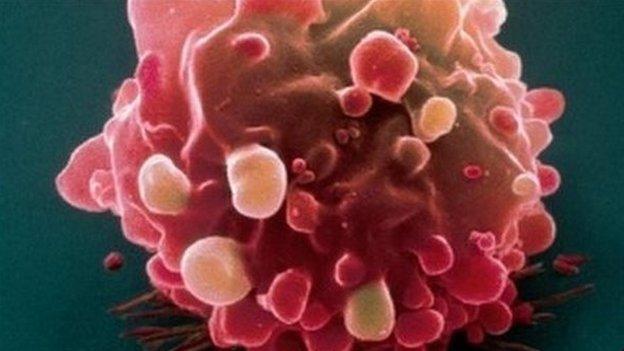Scots health boards miss early cancer detection target
- Published
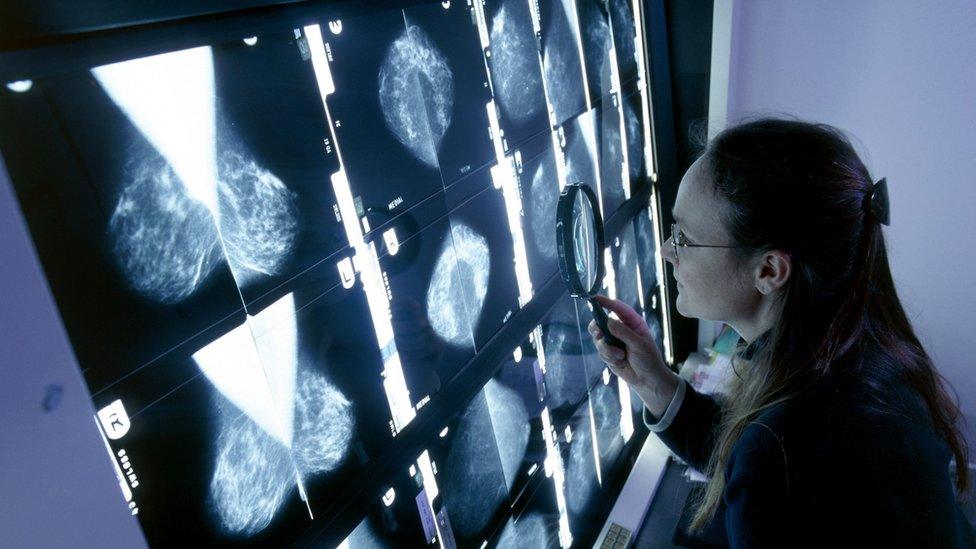
The government had set a target of increasing early diagnosis by a quarter
Scotland's health boards have fallen short of a target to increase the number of cancer cases detected early.
The Scottish government's Detect Cancer Early programme aimed to increase the proportion of cancer sufferers early in the disease process by 25% by 2016.
However, a new NHS report found that the increase, focusing on breast, colorectal and lung cancers, was 8%.
Health Secretary Shona Robison said the full impact of the programme would not be seen for "many years".
The government launched a new £100m strategy to tackle cancer in March.
The ISD Scotland report, external notes that a quarter of patients suffering from the three most common cancers had been diagnosed at the earliest stage.
Early diagnosis happened more often in the least deprived areas of Scotland - in these areas early detection happened in 28.8% of cases, while in the most deprived areas the highest proportion of cases were not diagnosed until the most advanced stage of the disease (29.6%).
Ms Robison said there had been an increase in uptake in cancer screening in more deprived areas.
She also said early detection was "vitally important" to continuing a trend which has seen cancer death rates drop 11% over the past decade.
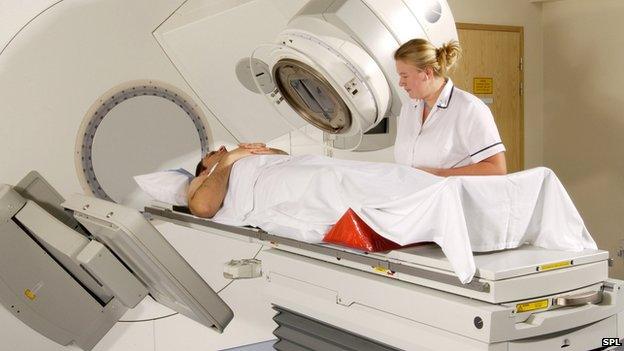
The report showed that cancer was diagnosed later in more deprived areas
She said: "The figures released today show that over 25% of all breast, lung and bowel cancers diagnosed in Scotland during 2014 and 2015 were detected at 'stage one' - and increase of 8% in the last five years.
"It will take many years before the full impact of our ambitious Detect Cancer Early programme is realised, however we are already seeing improvements in public awareness and attitudes to cancer including an increase in the uptake of bowel screening particularly from those in more deprived areas. More people are returning their bowel cancer screening tests than ever before in Scotland - around half a million every year.
"Dealing with a cancer diagnosis can be extremely difficult and scary and cancer treatments continue to be most effective when cancer is detected early, before it has a chance to grow and spread."
'Woefully short'
Scottish Conservative health spokesman Donald Cameron said the government had fallen "woefully short" of a pledge it had announced "amid great fanfare".
He said: "Nicola Sturgeon was the health secretary at the time, and now as first minister she must explain why the programme has been such a failure. It's yet another example of the SNP making trumpeted announcements, only to be found wanting when the results come in.
"We all know how crucial it is that cancer is detected early, and the fact there has been a small increase - albeit well short of the target - is welcome. But this report shows, right across Scotland, there is still a considerable amount of work to do."
Scottish Labour's health spokesman Anas Sarwar said: "Everyone accepts the link between speed of cancer diagnosis and survival rates, yet under the SNP three quarters of cancer patients are having to wait longer than they should for diagnosis.
"These figures show a shocking link between deprivation and late diagnosis. The record of failure from the SNP is not acceptable and its time they gave Scottish cancer patients the priority they deserve."
Scottish Greens co-convenor Patrick Harvie said the figures were "extremely disappointing", adding: "There is a clear link between screening rates and deprivation, and it seems not enough investment is going in to encourage people in less well-off communities to take part in screening programmes."
- Published28 June 2016
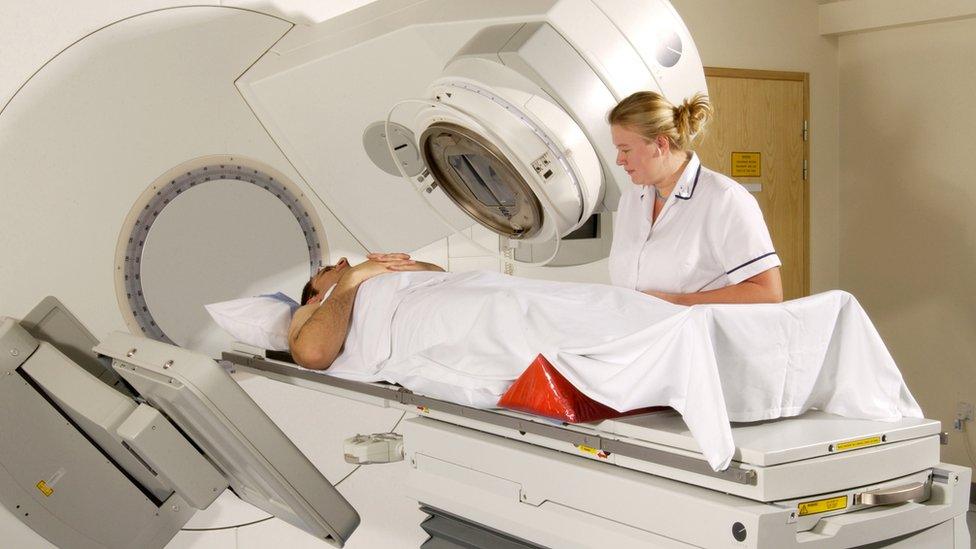
- Published15 March 2016
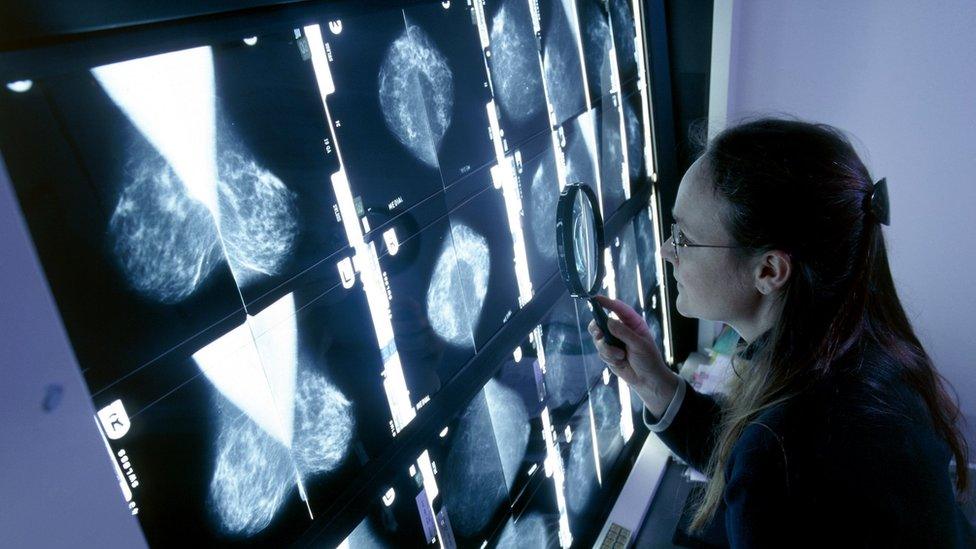
- Published6 January 2015
